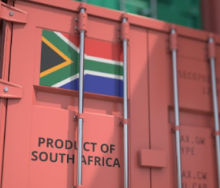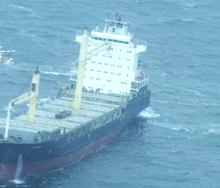The extensive acquisition of second-hand containerships since 2020, numbering more than 420 vessels, has removed 17% of Panamax box ships from the global charter fleet, driving a sharp rebound in charter rates.
As a result, limited charter availability for vessels carrying 800 to 15 000 TEUs has pushed carriers to secure tonnage for delivery as late as 2026, the South African Association of Freight Forwarders and Business Unity SA reports in its latest Cargo Movement Update.
In the UK it has also been reported that “this extensive buying spree has significantly reduced the availability of chartered vessels, leading to a sharp increase in charter rates across the industry”.
Reports furthermore indicate that MSC's actions have been a key driver behind the recent rebound in charter rates, with daily rates rising due to the scarcity of available vessels.
Recently, MSC chartered an 8 030 TEU ship for $90 000 per day, highlighting the competitive nature of the current market.
The surge in charter rates is not just a result of MSC's acquisitions but also reflects broader market dynamics.
Other major shipping lines, including Maersk and CMA CGM, are responding by renewing vessel charters and seeking additional tonnage to meet demand. The consultancy Linerlytica notes that this trend is indicative of firmer market conditions despite some stability in terms.
As MSC continues its purchasing strategy and charters more vessels, analysts predict that the competition for available ships will remain intense. This could lead to further increases in charter rates and potentially impact shipping costs globally.
The situation underscores MSC's dominant position in the container shipping market, where it now controls approximately 20% of global container capacity.
Many industry leaders agree that MSC's acquisitions have reshaped the landscape of the global container shipping industry, leading to reduced vessel availability and increased charter rates as carriers scramble to secure tonnage amidst a tightening market.













